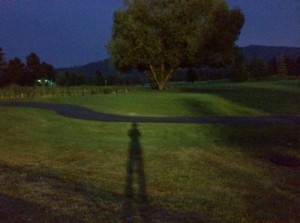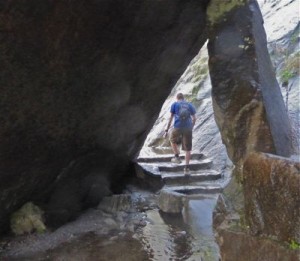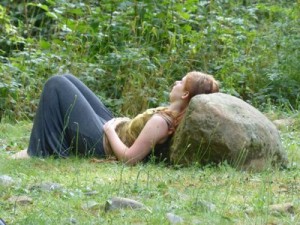Managing Your Energy, Part 31: Exploring Intuitive Communication

During verbal communication we share many subtle messages: postural, tonal, pitch, voice modulation, energetic, atmospheric, and thought-to-thought. Whether or not we are able to “read” that subtle communication, we all know that it exists.
Non-verbal communication includes the list above, and also what we “read” intuitively.
The greater our rapport and the more intuitively open we are, the more we are aware of that which is NOT said. This includes things that are understood already, clearly implied, and about to be said, as well as context and content we expect one another to read between the lines.
In this exploration I am referring to two distinct types of thought-to-thought or mind-to-mind communication, one clear and direct, and the other muffled and less direct. I am calling direct thought that one is willing to or about to share “text,” because it is easy to read, and calling thought that one circles about inside without necessarily intending to share “subtext.”
“Text” is available to be read clearly. “Subtext,” in this domain, is like inference or innuendo in speech. It is simultaneously communicated yet to some extent withheld.
“Text” is congruent, meaning body signals, emotional tone, and voice tone all match. “Subtext” is prevalent when someone is not internally congruent, or is unwilling to be clear and direct.
Note that I am not referring to all thought as either text or subtext. We are discussing thought which is taking place within the context of a conversation with another person. Personal internal thought occurs outside of conversation, without reference to communication with someone else. I am not drawn to track someone’s personal internal thought, and consider it none of my business.
Text exists in “Shared Space”. By Shared Space I mean the open place where meet mind-to-mind—to the extent we are able. Text may come across directly, mind-to-mind, as clear but unspoken communication.
Subtext is not fully in the shared domain. For this reason it comes across like a footnote in writing. Like text, subtext often occurs just before or after someone speaks—if they do indeed share. Subtext may contain information they do not intend to share, or are not sure whether they are willing to share. Subtext often expresses either some kind of self-protective worry, or a concern that the other person cannot deal with what one has to say. Subtext is not intimate. It often indicates a wall, hesitation, and perhaps even a negative judgment, of self or of the other person.
 Within the most intimate friendships we convene at least some of the the time in Shared Space, where our thoughts are available within our shared domain, without separation, blocking or guarding. We may or may not ‘hear’ these thoughts, but the way they charge our shared atmosphere—their energy—influences what comes to mind and our direction of conversation. We may weave in and out of a number of conversations, leaving them all ongoing over an extended course of time, without losing any of the threads. We know what our friend is talking about without a new preamble or introduction to the topic.
Within the most intimate friendships we convene at least some of the the time in Shared Space, where our thoughts are available within our shared domain, without separation, blocking or guarding. We may or may not ‘hear’ these thoughts, but the way they charge our shared atmosphere—their energy—influences what comes to mind and our direction of conversation. We may weave in and out of a number of conversations, leaving them all ongoing over an extended course of time, without losing any of the threads. We know what our friend is talking about without a new preamble or introduction to the topic.
Sometimes I say, “I heard you the first time,” when a friend clearly transmits a thought she is about to verbalize and then says it aloud. I can say how many seconds passed between thinking it and saying it, and they laugh with the fun of that intimacy. We are laying ourselves open to one another and the energy in the atmosphere usually stays very clear.
Subtext generates white noise or static in the mindspace. I sometimes experience subtext like a subtle pressure. Perhaps this experience reflects the pressure of the thought that is arising in the other person, or their conflict about bringing it out through speech. A thought may have arisen, yet s/he holds it back. Part of them wants to say it while another part does not. Subtext comes across without the clarity and definition of directed thought—but it comes across none the less. The energy this kind of subtext puts out is like static. It can cloud the atmosphere like unfinished business.
I find frequent and habitual subtext irritating. It draws my attention without satisfying my interest. The person is thinking something TOWARD or AT or ABOUT me or something else but isn’t sharing it WITH me. Excessive subtext is like muttering under one’s breath so it gets the person’s attention without them actually being able to discern the words. When habitual, this behavior can be distracting, draining or even passive-aggressive.
This reminds me of something the computer, Holly, said in the British SciFi Comedy, Red Dwarf: “If you have something to say, say it straight out! No innuendo or hyperbole.” I posted that on my door about twenty years ago when dealing with too much subtext.
Do YOU sense a difference between text and subtext?
How do you notice them and what do you experience?



















